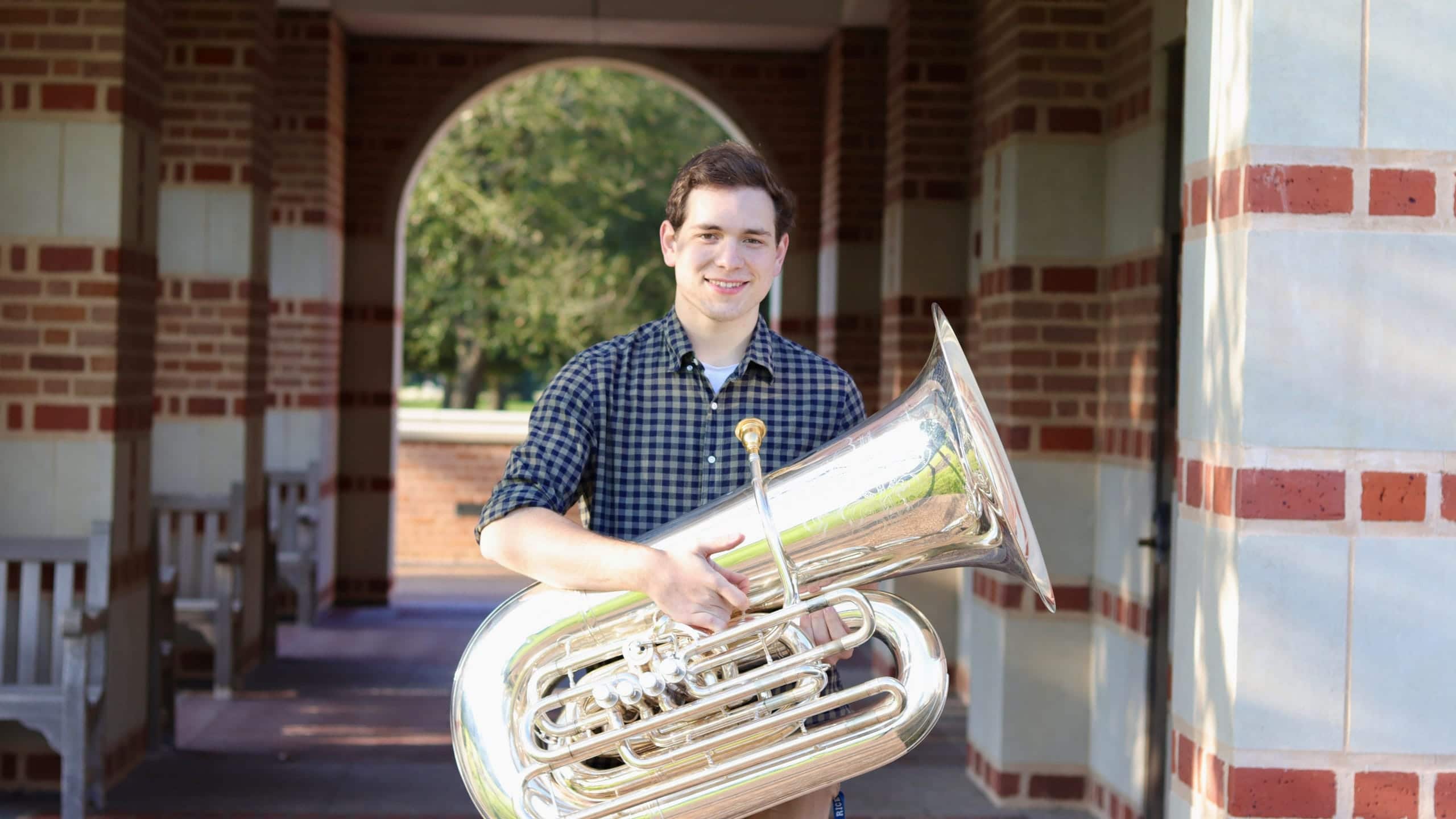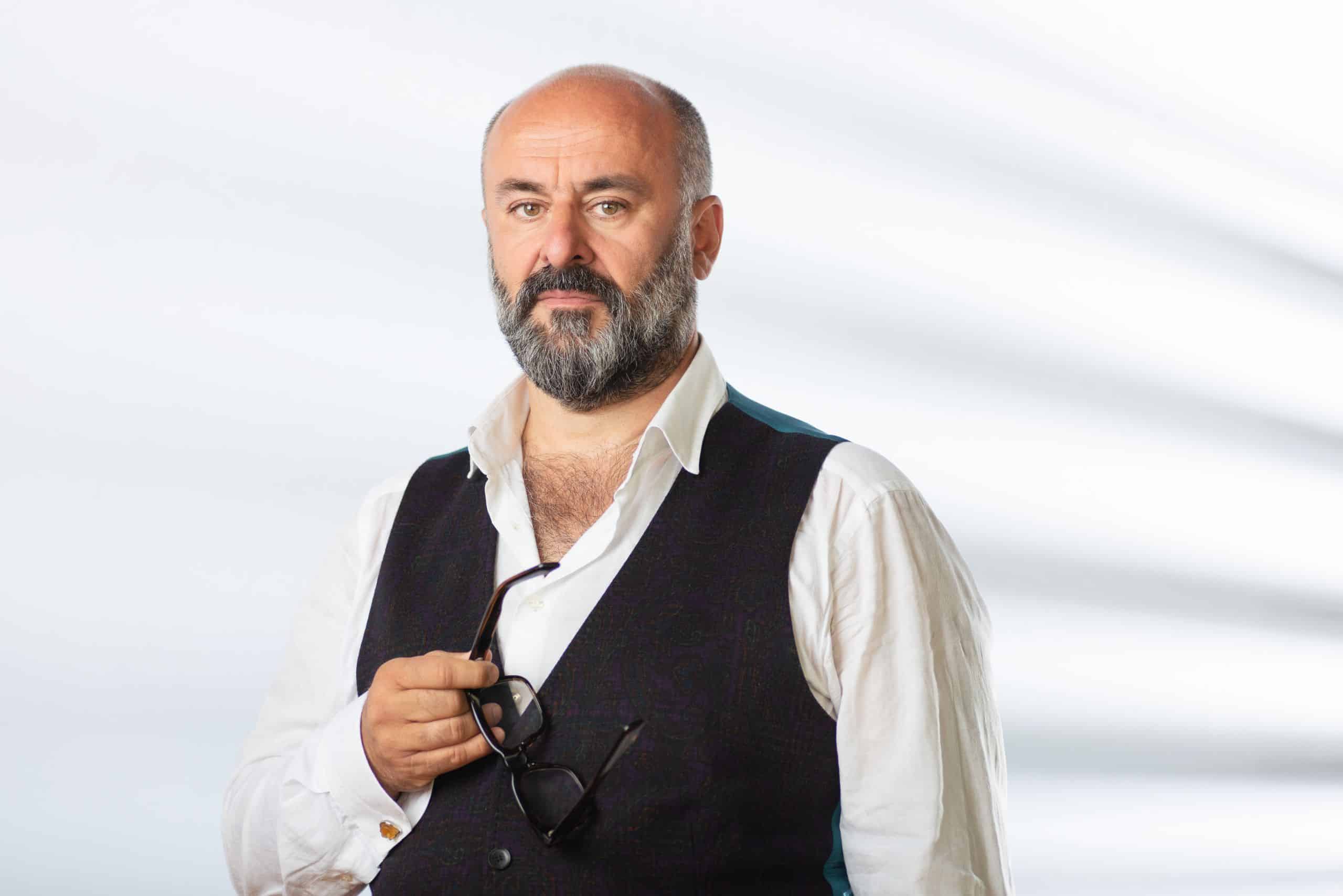Orchestra principals are getting younger
mainThe Milwaukee Ochestra has hired a new principal.
He’s 19 years old and plays tuba.
Robert Black makes his debut tomorrow, playing laying Paul Hindemith’s Morgenmusik.

More here.

The Milwaukee Ochestra has hired a new principal.
He’s 19 years old and plays tuba.
Robert Black makes his debut tomorrow, playing laying Paul Hindemith’s Morgenmusik.

More here.
The Syracuse Opera Company has filed for bankruptcy,…

The revered violinist Haim Taub, concertmaster of the…

In tonight’s Lebrecht Interview on BBC Radio 3,…

A barely recognisable version of Puccini’s last opera…

Session expired
Please log in again. The login page will open in a new tab. After logging in you can close it and return to this page.
Alright people give it to me straight I wanna hear your input
The orchestra could hire a monkey to do the job if they wanted that. When you form your own orchestra you can make those same decisions – for others to dislike and resent.
“He who pays the piper calls the tune”.
Nice.
The younger they are, the less you have to pay them.
No need to match current salary or benefits or retirement. No need to compensate for seniority. No need to find a position for a spouse, no need pay to relocate a whole family. They are less demanding, less litigious, less likely to get sick.
And they are just as good. Or good enough. Is 30 years more experience really worth $300,000 more per year?
In addition, the MSO’s current principal flute, Sonora Slocum, was hired in 2012 at age 23.
What a great story! Congratulations to Robert and all of his supportive family and teachers.
Good! The old players stay on too long in this country. Get out of the way and give the younger better players who CARE a chance!
He may be young but apparently he is also extremely good. Cheers to the MSO for a wonderful hire.
He wouldn’t have gotten the gig if he wasn’t.
Oh yes, I’m sure. Megumi Kanda, the MSO’s fantastic principal trombone, had high praises for him.
I’m sure he is a fine player. But a “principal” player? That is absurd. One cannot be a principal of a section of one. He is just as accurately “last chair” tuba. Why the need for title inflation? Will he look over at the principal trombonist and say, “Who do you think you are? I’m not listening to your ideas. The tuba section is doing things my way”? Principal bass clarinet, principal contrabassoon, principal bass trombone, principal piccolo. Everyone is in charge.
Just wow.
Actually that is the standard way, in US orchestras at least. Principal harp, principal timpani, principal keyboard. Normally there is just one of them, but sometimes there are more, in which case the principal plays the “first chair” part.
You are free to think it is a stupid system. If you write to the Milwaukee Symphony and let them know, I’m sure they will give your opinion an appropriate amount of consideration.
(Also, if he’s going to act like an asshole, he’s going to have to behave himself until he has tenure. The tuba is a position for a team player, and more importantly, composers usually write for it that way; so if he and the trombones, as you suggest, aren’t playing things in a unanimous way, the conductor is likely to intervene. Contrary to popular belief, tenure is not an absolute protection. A player can be fired for artistic reasons if the conductor has the patience to read the fine print in the master agreement and the patience to go through the entire dismissal process, which can take a year or more. So even if he wanted to be an asshole — which from the article he obviously doesn’t — he’d have to rein it in if he wanted to keep his job.)
He still receives principal pay, I believe.
Precisely the point Barry – he has the title ‘Principal’ because he receives a principal’s salary. If he led, say, the second violins or another string section he would have the title ‘Section Leader’ or something similar.
If he led the seconds, his title would be Principal Second.
An absurd comment with no understanding of orchestral structure or context. The word ‘principal’ in this context refers to the responsibility, the solo work, not to a mere supervisor of other players.
That is quite impressive. Congratulations to him.
I wonder what the age record is for an American orchestra?
Stanley Drucker joining Indianapolis at 16 is certainly up there (and he joined New York at 19).
What a player!
Given Covid and its impact on symphonic music, he should be performing a transcription of Trauer Musik
Tuba? August Shieldrop. Enough said.
I’m sure he’s very good, but this post is actually about someone else.
what has another tuba player got to do with the success of this young man? Can you not even let him have his moment? Is there only allowed to be one tubist at a time? Not to mention the misspelling of his surname.
***But several of the viola players are enrolled in Adulting classes, covering things like parallel parking.***
Back in the late 1940s Oliver Bannister was appointed principal flute of the Hallé Orchestra at the age of 19. He’d already done two years as second flute.
Carol Jantsch became principal tubist of the Philly Orch @ age 20. Not only young, but a woman!
. . . and a terrific player.
Well, that beats Philly’s Carol Jantsch (20 when she was appointed to their tuba post). Congratulations!
Carol Jantsch the extraordinary tubist of the Philadelphia Orchestra was just 20 when she became the 1st and youngest female tuba of a symphony orchestra.
No they’re not. Michael Mulcahy first trombone Melbourne Symphony Orchestra in the seventies aged 18, now Chicago Symphony. Prudence Davis appointed principal flute Melbourne Symphony Orchestra in 1980 at the age of 20. Forty years of stewardship and still going strong. Leon Goosens, Queen’s hall orchestra at 16, Lothar Koch Berlin Philharmonic at 19, Andres Blau solo flute Berlin Phil at 18. No change. Talent was always there young and forever will be.
What great company this young man joins. Lynn Harrell was just 19 when he began with the Cleveland Orchestra. Neville Mariner was only 15 when he joined the LSO. Meanwhile, Barry Tuckwell was also just 15 when he joined the Melbourne Symphony. Gregor Piatigorsky, at 15, was principal cellist in the Bolshoi Theatre orchestra. Gunther Schuller was 17 when he was named principal horn with the Cincinnati Symphony Orchestra (1943–5). Before that he played two years with American Ballet Theater.
Born 1928 Cleveland Ohio Bernard Adelstein 1943 2nd trumpet age 15 Ballet Russe de Monte Carlo , 1944 2nd trumpet Pittsburgh Symphony, 1948 Principal Dallas Symphony Orchestra, 1949 Principal Minnesota Symphony, 1960-1988 Principal The Cleveland Orchestra. Franz Allers, Fritz Reiner, Antal Dorati, George Szell
his music directors –
Bernie was an amazing player, one of America’s all time greats and a wonder colleague.
It’s irrelevant how you a player is if they can play well and do the job. Has anyone ever questioned young soloists like Vengerov, Chang, Mutter, Ma, Kissin?
Relevant is addressing the orchestra by its full proper title The Milwaukee Symphony Orchestra!
There are more than one orchestra in Milwaukee.